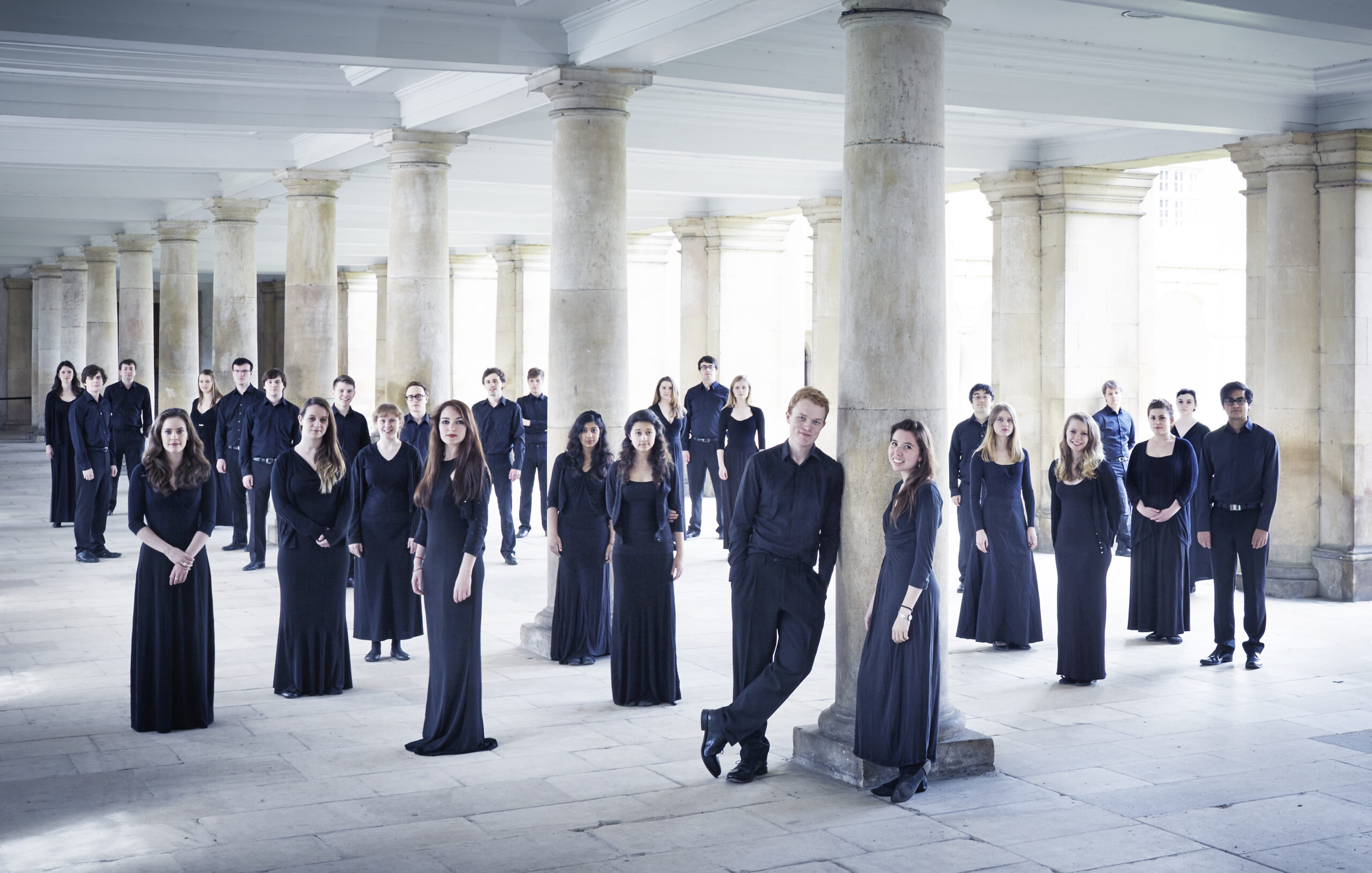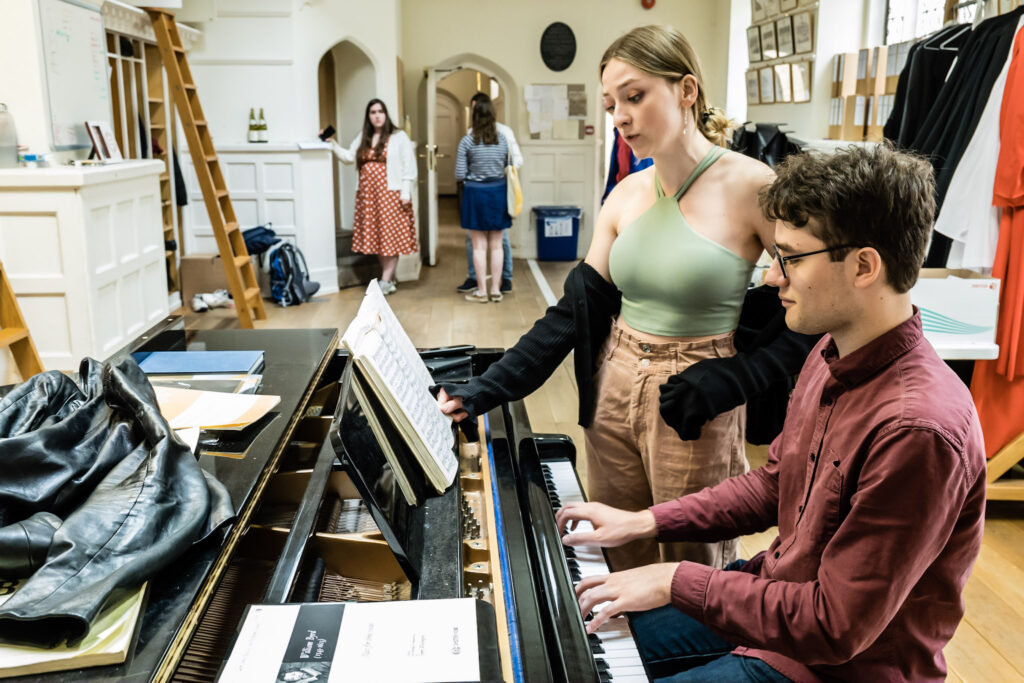
Mythbusters
We have heard many myths and misconceptions about joining Trinity College and the Choir over the years. Here are some of them together with the real answers!
If you’re still looking for answers or further information then please get in touch by sending an email to > [email protected]
Myths
“Trinity is the hardest College in Cambridge to get into academically.”
Trinity is no harder to get into academically than other Colleges. Each year Trinity admits approximately 200 undergraduates; the total undergraduate population at any time is roughly 660 – the largest of any Cambridge college. The number of applications we receive is usually around 1,000, so the ratio of applications to places is about five to one – much the same as for Cambridge as a whole.
“My grades aren’t good enough to be selected for an interview at Trinity.”
The Admissions team at Trinity selects its potential interviewees based on their predicted A-level exam grades and their UMS scores. In general, 80% of students that apply to Trinity are selected for interview – again, this is representative of (or even a bit higher than) many other Colleges in Cambridge.
“I need to have all A* grades in all my GCSEs.”
Not true! GCSE is just one of the factors taken into account. Trinity looks for potential as well as achievement. Trinity likes to see students on a rising curve of improvement in their grades, with AS scores being higher than that of GCSEs, and A2 scores being higher once again.
“If I don’t get a conditional offer from Trinity, then I’ve blown my one and only chance of getting into Cambridge and also of getting a Choral Scholarship.”
Not true! Trinity is one of the largest donors to the Winter Pool system in Cambridge. On average, every year, Trinity places the application files of between 80 to 100 students who were ‘near-misses’ at interview into the Winter Pool for consideration by other Colleges. Other Colleges that have spare places available use the pool and find places for many students that initially applied to Trinity.
“Trinity has much higher Conditional Offers than other Colleges in Cambridge.”
Trinity’s A-level offers are not typically different to those of other Colleges in Cambridge (i.e., A*AA in the Arts and A*A*A in the Sciences). In fact, Trinity very rarely exceeds the standard offer, while some Colleges do give a proportion of higher-than-standard offers.
“You have to be a member of Trinity College to sing in the Choir.”
Not true! The Choir includes a good number of people who are members of other Colleges, known as Choral Volunteers. There is very little difference between the duties and benefits of being a Choral Volunteer and being a Choral Scholar.
“If more than one person from my school is applying for a Choral Scholarship then we’re both at a disadvantage.”
Not true! There is no disadvantage in several people applying from the same school.
Misconceptions
“I don’t think my voice is good enough.”
At the age you will be applying, you will not be expected to be technically perfect or an experienced solo singer. We are looking for potential and is passionate about developing and nurturing this talent over your time in the Choir, with the support of our excellent singing teachers. We are impressed as much by responsive musicians who are clearly excited by the sort of music the Choir performs, and who want to perform it at the very highest level, as by the quality of their voices on application.
“I don’t think my sight-reading is good enough.”
Your sight-reading does not have to be excellent when you apply – we accept singers with a wide range of sight-reading abilities. There is plenty of time to look at the music in advance and your sight-reading skills will improve greatly over time.
“I don’t have experience of singing in church choirs.”
Having prior experience of singing church music is not a pre-requisite of joining Trinity College Choir. While it’s true that the bulk of the Choir’s singing during term involves liturgical works to be sung at weekly services, you will become familiar with these pieces over the course of time, and have plenty of time to learn the repertoire. Trinity Choral Scholars come from a wide range of musical backgrounds: a few have sung in church or cathedral choirs but others just enjoy singing and have taken up opportunities at their schools to be involved in other musical activities.
“I want to be involved in other University musical (and non-music) activities and I’m worried that I won’t have time to do this if I sing in Trinity College Choir.”
The time commitment in Trinity College Choir is relatively small during term. Members of the Choir can regularly be found performing in operas, directing plays, rowing and playing football, singing in close-harmony groups, giving solo recitals and much more besides. Trinity has a thriving College music scene and excellent music facilities – Trinity College Music Society organises around 30 concerts a term.
“Do I have to study Music to receive a Choral Scholarship?“
You do not have to study Music: Choral Scholarships can be combined with any subject taught at Trinity except Medicine. Members of Trinity College Choir read a wide variety of subjects including Music, Maths, Natural Sciences, Engineering, Law, Theology, English, Classics, Modern and Medieval Languages and more.
